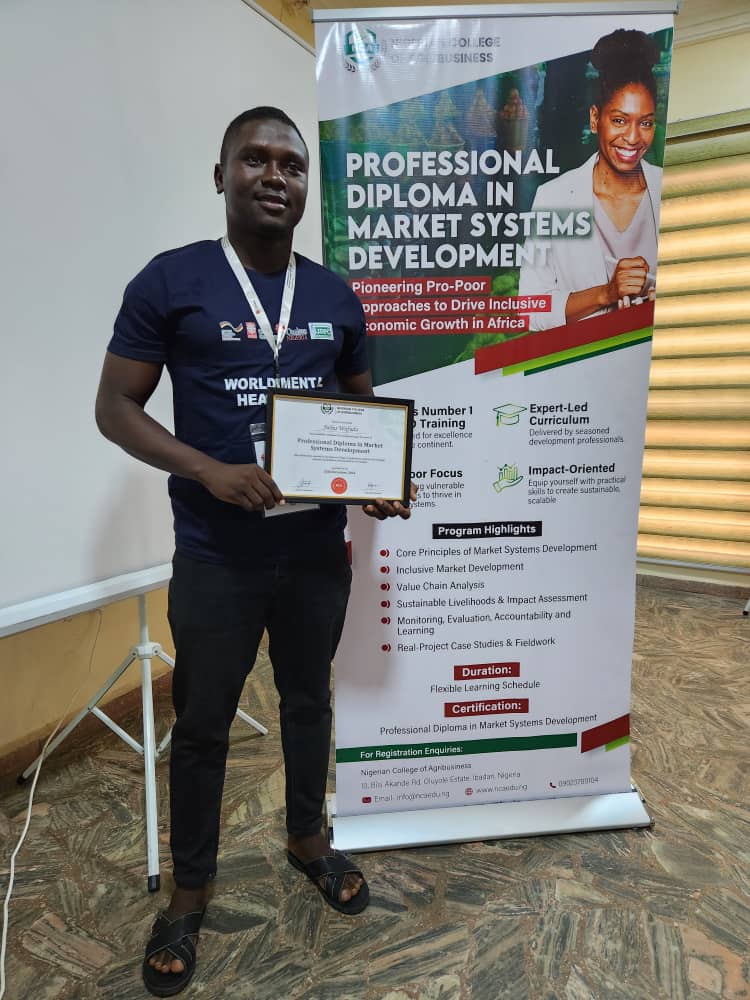Start Dates
Duration
Fees
Mode of Study
With the growing global demand for natural and holistic health solutions, Africa’s abundant herbal resources present a powerful opportunity for innovation, sustainability, and economic growth. The Professional Diploma in Herbal Business Management is a transformative program designed to equip you with the knowledge, skills, and entrepreneurial mindset needed to succeed in the herbal industry. This unique diploma program blends traditional herbal knowledge with modern business practices, offering a holistic approach to creating and managing herbal enterprises—from raw materials sourcing to product development, branding, and compliance with international standards.
This program is ideal for herbal business owners, wellness practitioners, and aspiring entrepreneurs who want to bring their herbal products and services to market. Through a comprehensive curriculum, participants will learn about the industry’s most in-demand segments—including wellness, skincare, and dietary supplements—while also developing the skills to position products effectively, manage sustainable supply chains, and navigate the regulatory landscape.

Build profitable herbal businesses by identifying niche markets, creating high-quality products, and developing sustainable operations.
Formulate targeted herbal products that cater to specific health needs, supported by robust quality assurance and consumer education.
Develop a strong understanding of international trade for herbal products, enabling expansion and global reach.
Herbal Industry Landscape and Market Opportunities
This introductory module provides insights into the herbal industry landscape, highlighting market opportunities and consumer trends. Participants will gain knowledge on key segments such as disease-specific wellness (e.g., diabetes, heart health), anti-aging, and mental wellness, while also understanding how to navigate competitive markets.
Key Learning Activities in Module 1:
Herbs in Disease-Specific Market
Focusing on the major disease-specific markets, this module dives into creating herbal products that target conditions like diabetes, cardiovascular health, immune support, and more. Participants will explore the potential and research behind using herbs for specific health outcomes, with attention to safe use and efficacy.
Key Learning Activities in Module 2:
Herbal Raw Material Sourcing, Quality Assurance, and Traceability
An essential module focused on sourcing sustainable, high-quality herbal ingredients and implementing traceability. Participants will learn about quality assurance, handling logistics, and working with local communities for sustainable sourcing.
Key Learning Activities in Module 3
Product Development for Herbal Skincare, Wellness, and Supplements
Learn to develop herbal products that cater to the skincare, wellness, and supplement markets. This module covers formulation, product testing, and tailoring products for specific demographics such as men’s health, women’s wellness, and anti-aging markets.
Key Learning Activities in Module 4
Regulatory Compliance and Navigating Herbal Business Regulations
Participants will gain practical knowledge on regulatory requirements for herbal products in different markets, with a focus on labelling, safety, and international export standards. This module covers navigating regulations in Africa, Europe, and North America to broaden market reach.
Key Learning Activities in Module 5
Branding, Marketing, and Consumer Education for Herbal Products
Differentiating herbal products through branding, storytelling, and consumer education is critical. This module focuses on creating brand narratives, consumer education for herbal products, and innovative marketing strategies that build brand loyalty and product demand.
Key Learning Activities in Module 6
Disease-Specific Herbal Product Formulation Labs
In this hands-on module, participants will gain experience in formulating disease-targeted herbal products. Each session will focus on a different therapeutic area, such as cardiovascular wellness, diabetes management, immune support, and mental wellness.
Key Learning Activities in Module 7
Financial Planning and Revenue Models for Herbal Enterprises
A deep dive into financial planning, this module focuses on business models specific to herbal products, covering cost management, revenue generation, and financing options to build a sustainable enterprise.
Key Learning Activities in Module 8
Specialty Herbs and Formulations for Functional Foods and Wellness Beverages
Focusing on the emerging market of herbal-infused functional foods and beverages, this module covers the creation of teas and other wellness drinks. Participants will learn about ingredient selection, flavour profiles, and product presentation for the food and beverage market.
Key Learning Activities in Module 9:
International Market Entry Strategies for African Herbal Products
To help participants access global markets, this module delves into market entry strategies, understanding export requirements, and analysing potential barriers for African herbal products in international markets.
Key Learning Activities in Module 10

No other institution in Africa offers such a comprehensive approach to agribusiness and development sector education as the Nigerian College of Agribusiness. We provide a unique blend of academic rigor, practical expertise, and industry connections. Here, you will learn from experienced faculty members who are experts in their fields and deeply engaged with the latest advancements in their industries.
We leverage interdisciplinary knowledge and the latest research to enhance our programs, ensuring they are relevant and impactful. At NCA, you will continuously engage with thought leaders who are constantly shaping the dynamics of their industries and after graduation, you will be a life-long member of a vibrant alumni community that continually foster cross-disciplinary learning and networking.
STEP 1: Complete the Application for Admission Form for the course
STEP 2: A non-refundable application fee of N20,000 applies and will be deducted from the tuition upon enrollment. This is payable into
Zenith Bank
Account Name: Nigerian College of Agribusiness
Account Number: 1228461510
STEP 3: Attach receipt of Application fee with your highest academic credential and submit to: [email protected]
STEP 4: Upon successful evaluation of your application, you will receive your Admission Letter indicating acceptance into the program. The Letter will also contain details of enrollment into the Course.
Click on the link below to fill the application form for this course
Virtual: N300,000
Physical: N450,000
International Students: $400
Get monthly marketing tips and exclusive discounts straight to your inbox

Our mission is to cultivate a vibrant, sustainable and profitable agribusiness sector that drives economic growth and social progress across Africa and beyond.
We are committed towards educating a new generation of agribusiness sector leaders that will transform the economic fortunes of the African continent
© NCAEDU 2023 All Rights Reserved.